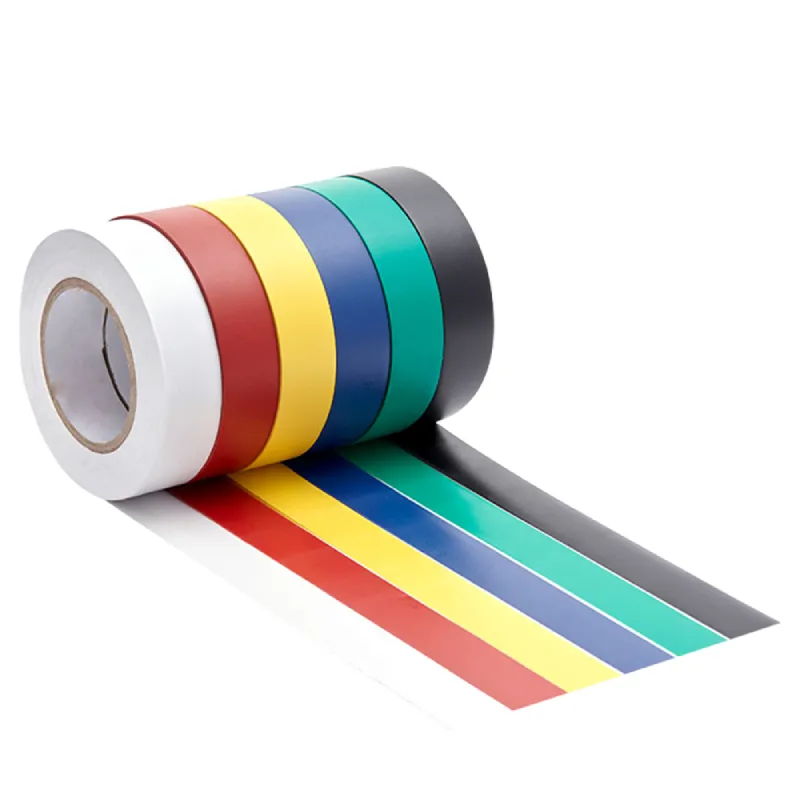The Versatile Applications of Electrical Cotton Tape
Electrical cotton tape, often simply referred to as cotton tape, is a specialized type of insulating tape that has become an essential tool in various industries, including electrical engineering, construction, and automotive sectors. This versatile material is characterized by its strength, flexibility, and excellent electrical insulating properties, making it highly valuable for numerous applications.
Composition and Characteristics
Typically woven from high-quality cotton fibers and coated with a rubber or phenolic resin, electrical cotton tape possesses several key characteristics. Its fabric structure allows for superior conformability, enabling it to wrap around irregular shapes and tight spaces. The tape is also resistant to heat and aging, ensuring long-lasting performance under a variety of environmental conditions. Additionally, it offers excellent dielectric strength, making it ideal for applications that require electrical insulation.
Electrical Insulation
One of the primary uses of electrical cotton tape is in the field of electrical insulation. It is commonly used to wrap wire connections, electrical components, and terminals to protect against moisture, dust, and other environmental factors that could cause corrosion or electrical shorts. The tape's insulating properties prevent unintended current flow, thereby enhancing the safety and reliability of electrical systems. Unlike some plastic insulation materials, cotton tape is breathable, which helps prevent moisture buildup and consequent damages.
Binding and Protection
electrical cotton tape

Beyond its insulating properties, electrical cotton tape is widely utilized for binding and protecting wiring and other components. Its flexibility allows it to be easily maneuvered around edges and corners, securing cables and wires in place while maintaining a neat appearance. In automotive applications, it is often employed to bind loom harnesses, preventing wear and tear on critical wiring systems. The tape also provides protection against abrasion and mechanical damage, ensuring that the underlying materials remain intact throughout their life cycle.
Specialty Coatings
Electrical cotton tape may also come with specialty coatings that enhance its properties for specific applications. For instance, certain varieties are treated with flame-retardant compounds, meeting stringent safety standards in high-risk environments. These coated tapes are essential in situations where flammability is a concern, such as in aerospace and industrial settings. Additionally, tapes with moisture-resistant coatings are ideal for outdoor applications where exposure to rain and humidity is prevalent.
Aesthetic Applications
Interestingly, electrical cotton tape has also found its place in aesthetic applications. In arts and crafts, it serves as an excellent tool for creating decorative electrical installations, providing a vintage or industrial look that is highly sought after. Artists and designers often appreciate the tape’s natural fiber appearance, which can blend seamlessly with various materials. Some even use colored varieties of cotton tape to add visual flair to their projects.
Conclusion
In summary, electrical cotton tape is an indispensable tool in numerous industries and applications. Its unique combination of electrical insulation, physical strength, and aesthetic versatility makes it a preferred choice among professionals and DIY enthusiasts alike. As technology and materials continue to evolve, the applications of electrical cotton tape are likely to expand even further, solidifying its status as a cornerstone in the world of electrical and mechanical engineering. Whether it is for practical applications or creative endeavors, this humble tape proves that it can do much more than just hold things together—it is a material with endless potential.
-
Self Amalgamating Tape: Redefining Electrical Insulation and ProtectionNewsAug.07,2025
-
Seal Strip Solutions: Revolutionizing Energy Efficiency and Comfort in Modern BuildingsNewsAug.07,2025
-
High Voltage Electrical Tape: Powering Safety and Reliability in Modern InstallationsNewsAug.07,2025
-
Flex Tape Waterproof: Transforming the Future of Instant RepairsNewsAug.07,2025
-
Elevate Electrical Safety Standards with High-Performance PVC Electrical TapeNewsAug.07,2025
-
Butyl Rubber Tape: The Ultimate Solution for Reliable Sealing and WaterproofingNewsAug.07,2025
